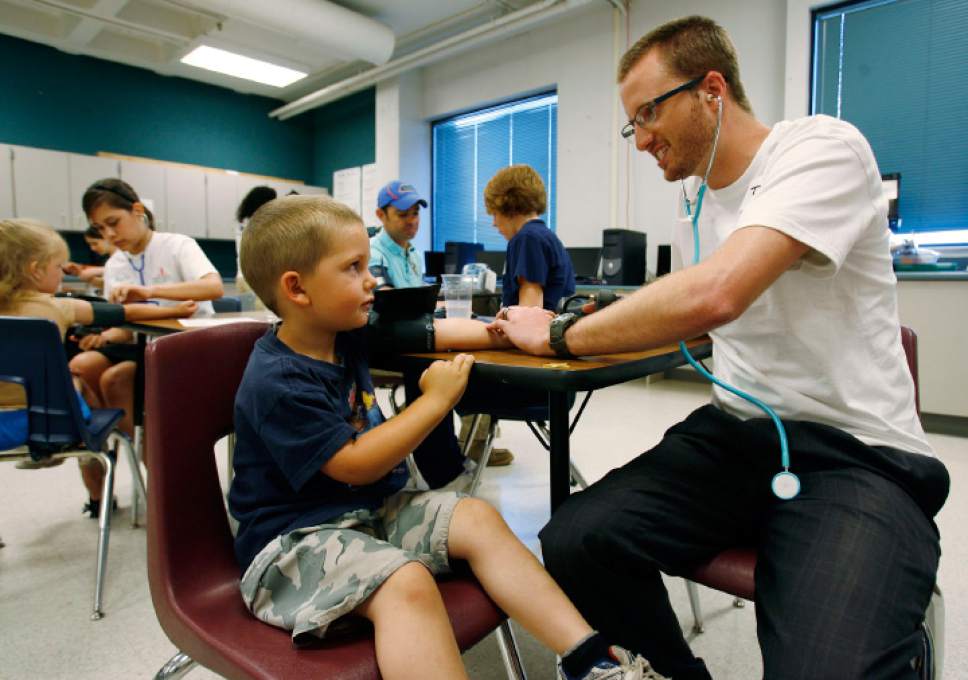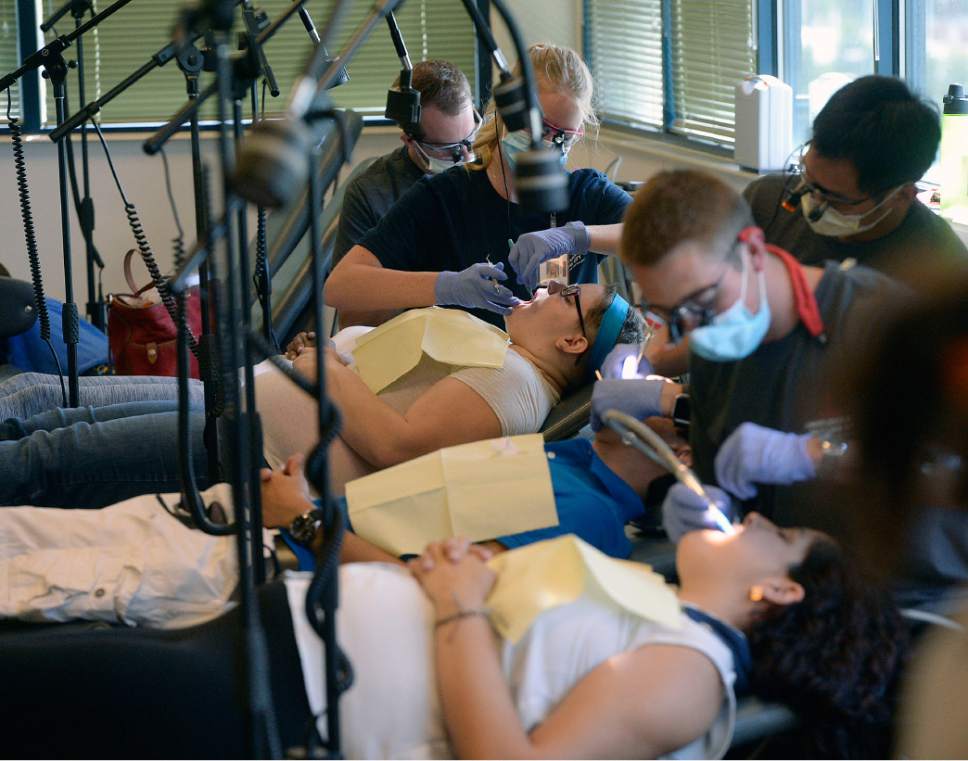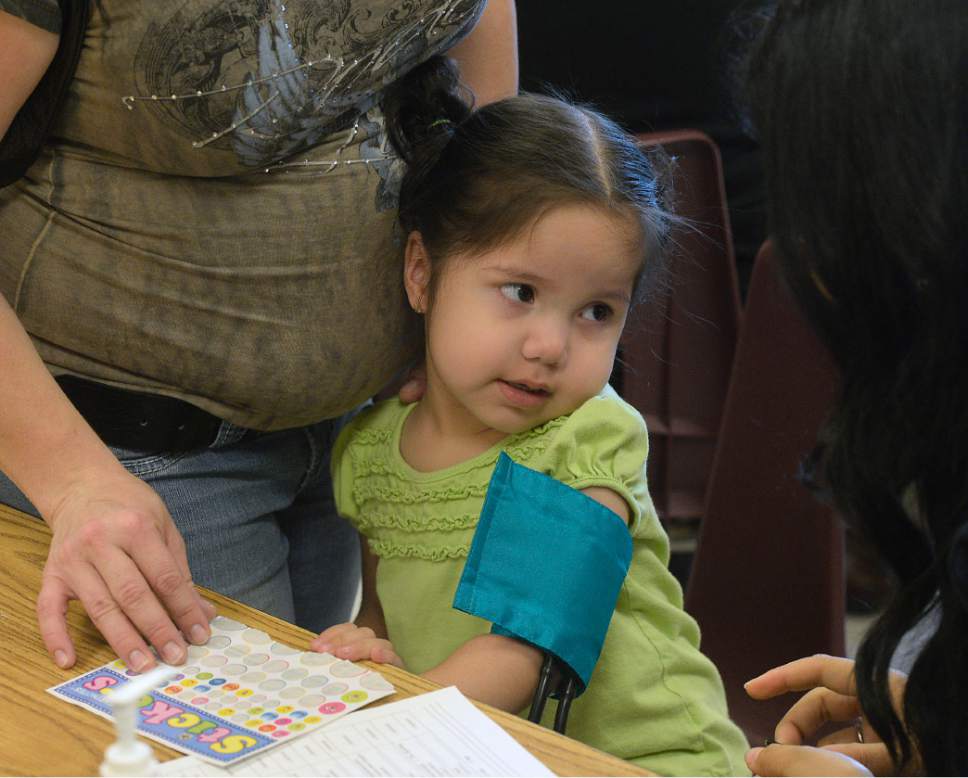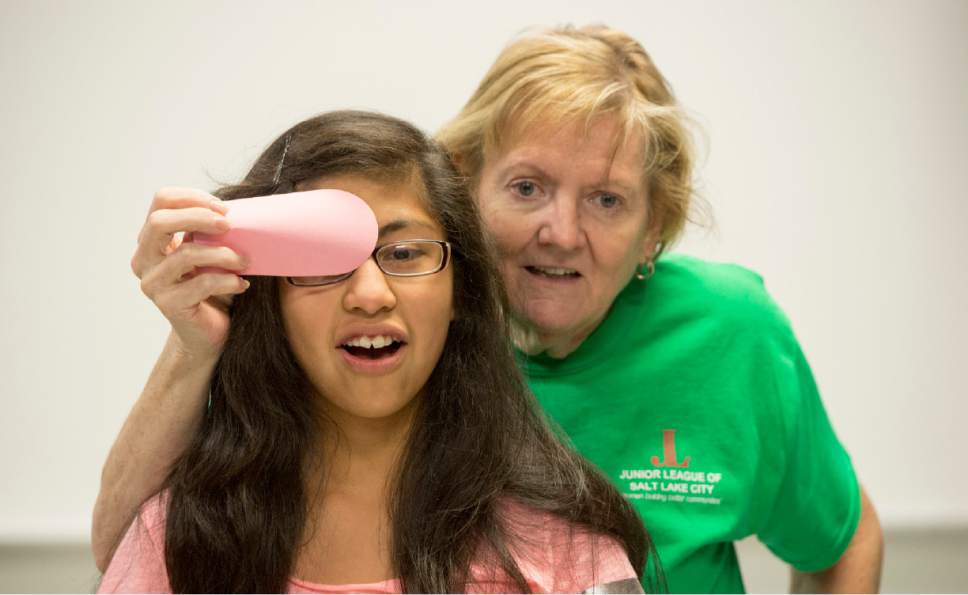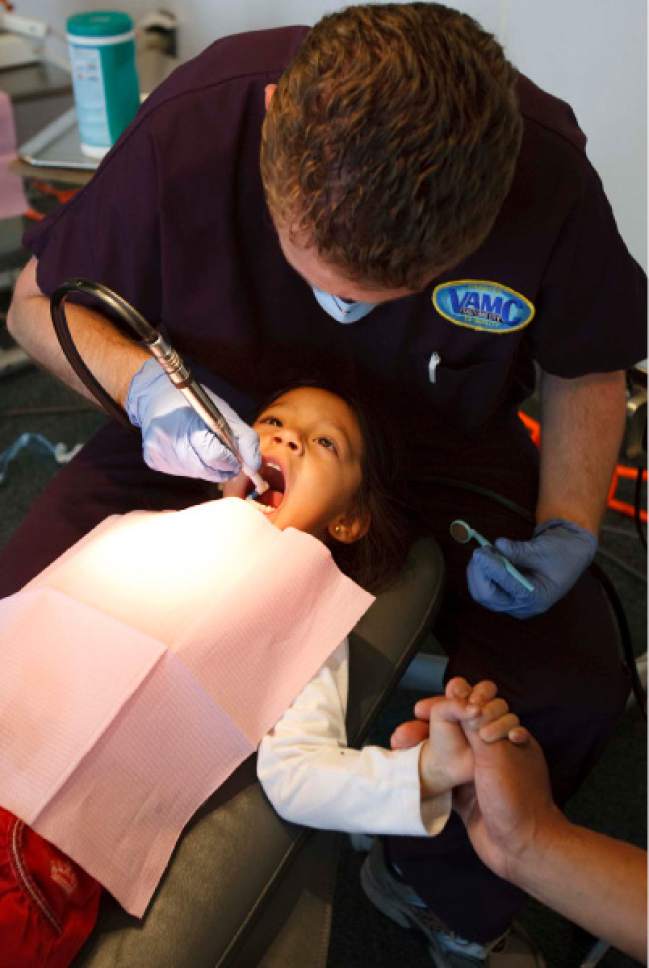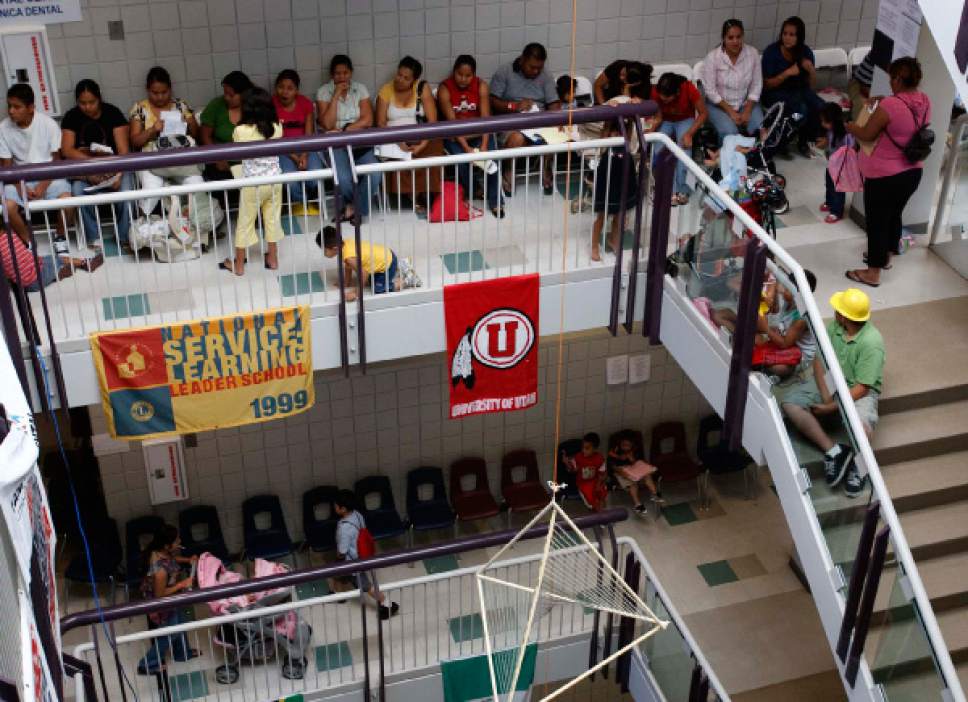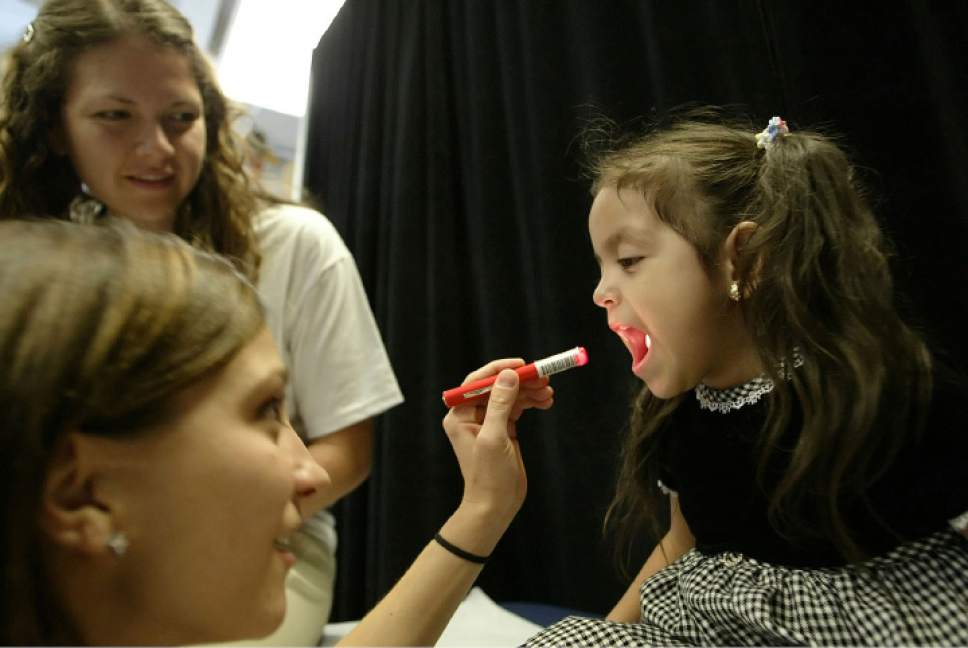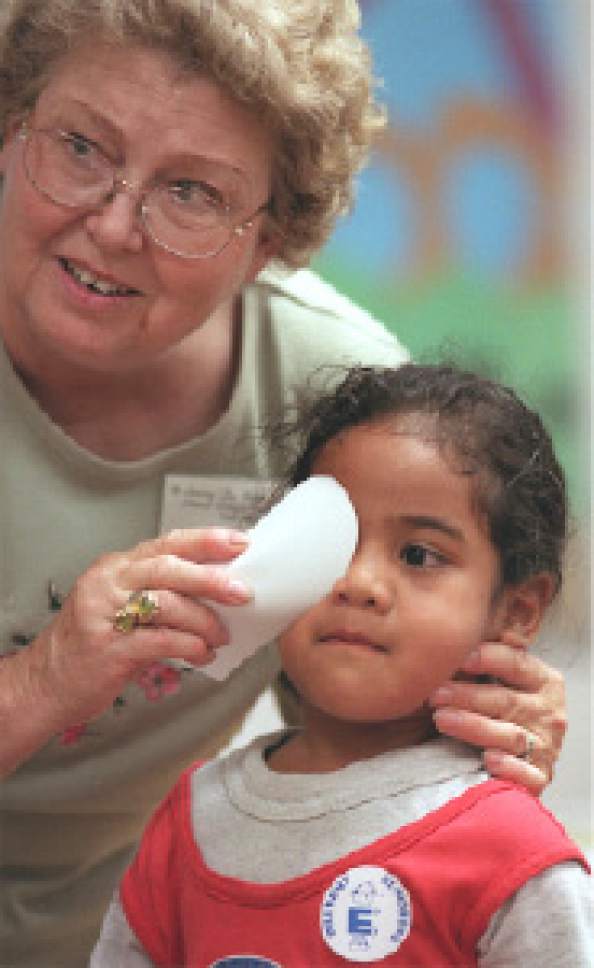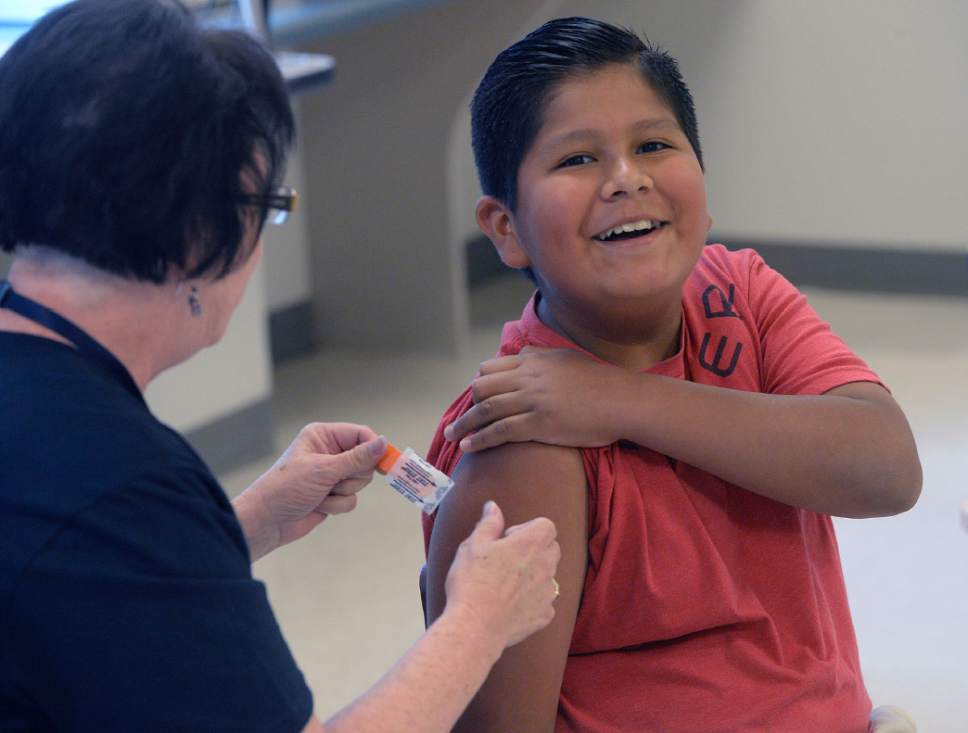This is an archived article that was published on sltrib.com in 2017, and information in the article may be outdated. It is provided only for personal research purposes and may not be reprinted.
Every year, Lisa Mietchen gets teary-eyed seeing the line of people waiting before the doors open on the first day of CARE Fair.
The Community Assistance and Resource Event (CARE) Fair offers free physical exams, dental cleanings, child and adult immunizations, disease screenings and mental health assessments to patients of all ages on first-come, first-served basis.
"We have people every year say, 'What would we do without this?' or 'Where would we go?'" said Mietchen, a longtime volunteer with the fair's creator, Junior League of Salt Lake City.
What started 25 years ago as free immunizations for about 300 children has transformed into a community resource that has served nearly 70,000 people. This year's fair will be held from 9 a.m. to 8 p.m. Friday and 9 a.m. to 5 p.m. Saturday at Horizonte Instruction and Training Center in Salt Lake City.
People seeking care do not need proof of insurance, identification cards or appointments, although immunization cards showing past care are required for children and adults to receive vaccinations. Translators will be available, and car seats and children's bike helmets will be distributed while supplies last.
Before the Affordable Care Act passed, the fair was a haven for those with low incomes or pre-existing conditions who struggled to access health insurance. And attendance dipped only slightly in 2014, the first year after policies became available under the act, said Vicki Harder, this year's fair director, and demand rebounded the next year.
Organizers this year don't anticipate a surge in attendance, which averages slightly more than 3,000. But the fair's medical director, physician Richard Backman, believes the need for more events like CARE Fair could increase if current federal health reform legislation passes.
Mietchen vividly remembers the two days she rushed around Eisenhower Junior High School in August 1992, connecting children with doctors providing free immunizations before school started. Dozens of families lined the school's steamy hallways, waiting to be seen by a handful of volunteer health care providers.
"It was a lot of putting out fires, solving problems and figuring things out on the fly," she said. "None of us expected [CARE Fair] to turn into what it is now."
After that first year, the Junior League saw the need to provide free screenings to more than just children and reached out to collaborators.
Partnerships with the University of Utah's School of Medicine, Intermountain Healthcare, area physicians, dentists and other providers expanded the fair's offerings and attendance increased quickly, Mietchen said.
Nursing, medical, physician assistant and dietetic students from the U. work with physicians to perform exams and screenings. Backman, medical director for the U.'s physician assistant program, said the fair creates a learning opportunity for students that he only hoped for when he first volunteered 13 years ago.
"Not only do they get to do the work, but they also get to see firsthand that not everyone has the privilege or resources to access good health care," Backman said.
Seventy-nine percent of fair patients in 2016 had a yearly household income of less than $30,000, according to exit survey data.
Harder said the main shift has been toward adults seeking the fair's services. In 2016, about 53 percent of attendees were 18 or older.
"The key thing for us is that anyone who walks through that door will be served," Harder said.
A voucher program helps attendees receive free and confidential follow-up care. Junior League raises money for the vouchers and partners with the Utah Department of Health and Intermountain Medical Center to provide the care. At last year's fair, 59 medical vouchers, 52 dental vouchers and 100 vouchers for mammograms were distributed.
Dentist Charles Walker, who has volunteered at the fair for several years, said seeing the level of unmet need is a little discouraging but doing his part is rewarding.
"I'm afraid there is always going to be a population of people that require help and [CARE Fair] is one great way to help," he said.
kgifford@sltrib.com Twitter: @kelgiffo


